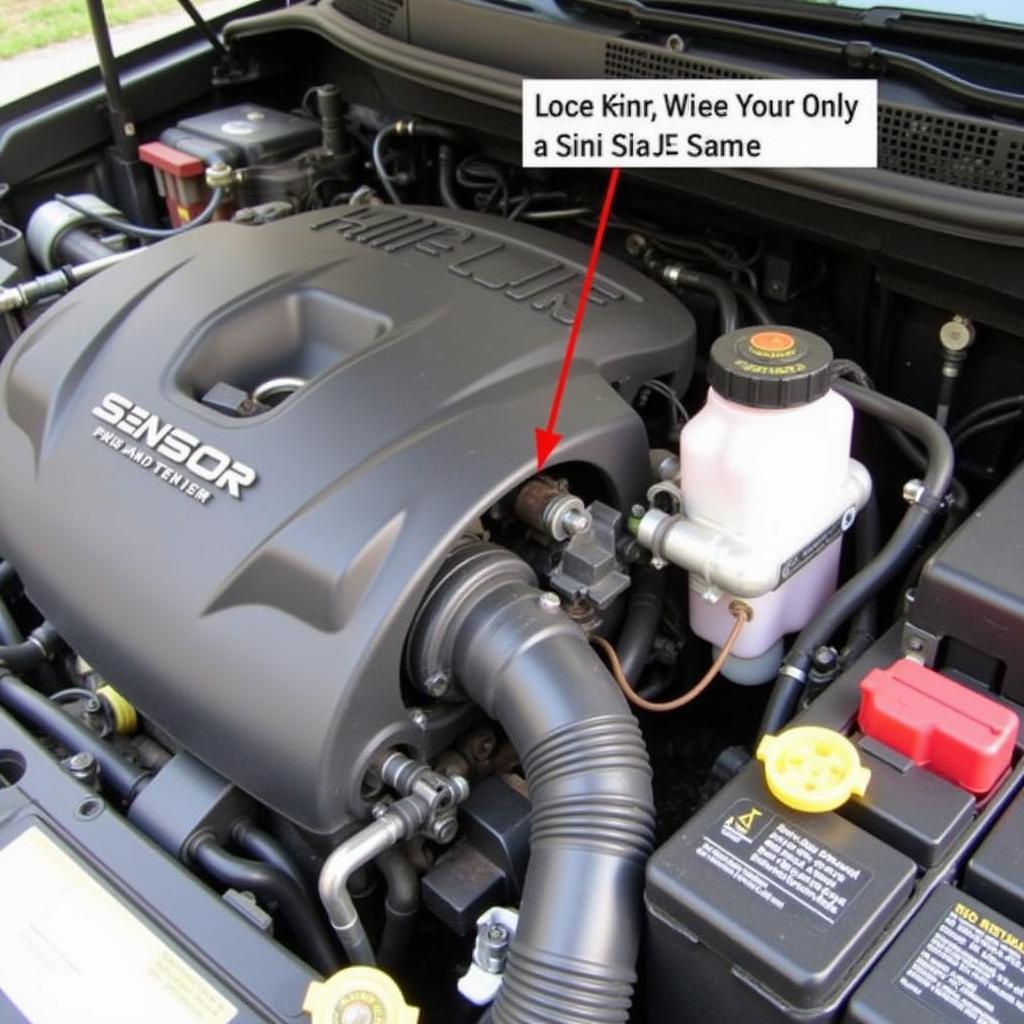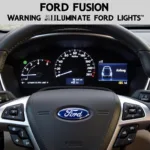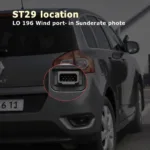Detonation, also known as engine knock, is an abnormal combustion event that occurs in your car’s engine. Instead of the air-fuel mixture burning smoothly, detonation causes an uncontrolled explosion inside the combustion chamber. This can lead to a knocking or pinging sound from your engine, reduced performance, and even serious engine damage if left unaddressed. OBD2 codes related to detonation alert you to this issue, helping you diagnose and fix the problem before it escalates.
Understanding OBD2 codes specifically related to detonation is crucial for any car owner. These codes provide valuable insights into what’s happening inside your engine and guide you towards the root cause of the problem. This article will delve into the intricacies of OBD2 codes for detonation, explaining what they mean, their common causes, and how to address them effectively.
Common OBD2 Codes for Detonation
While the specific code may vary depending on your car’s make and model, here are some of the most common OBD2 codes related to detonation:
- P0325: Knock Sensor 1 Circuit Malfunction (Bank 1 or Single Sensor)
- P0326: Knock Sensor 1 Circuit Range/Performance (Bank 1 or Single Sensor)
- P0327: Knock Sensor 1 Circuit Low Input (Bank 1 or Single Sensor)
- P0328: Knock Sensor 1 Circuit High Input (Bank 1 or Single Sensor)
- P0329: Knock Sensor 2 Circuit Malfunction (Bank 2)
- P0330: Knock Sensor 2 Circuit Range/Performance (Bank 2)
- P0331: Knock Sensor 2 Circuit Low Input (Bank 2)
- P0332: Knock Sensor 2 Circuit High Input (Bank 2)
What Causes Detonation and Triggers These Codes?
Several factors can contribute to detonation in your engine, ultimately triggering these OBD2 codes:
- Low-Quality Fuel: Using fuel with a lower octane rating than recommended for your vehicle can lead to premature detonation.
- Lean Air-Fuel Mixture: If your engine is running too lean (too much air, not enough fuel), it can increase combustion chamber temperatures and promote detonation.
- Carbon Buildup: Excessive carbon buildup in the combustion chamber can create hot spots that ignite the air-fuel mixture prematurely.
- Faulty Knock Sensor: The knock sensor plays a vital role in detecting detonation and adjusting engine timing accordingly. A malfunctioning sensor won’t detect the knock, leading to continued detonation and potential engine damage.
- Faulty Spark Plugs: Worn-out or incorrect spark plugs can disrupt the combustion process, potentially causing detonation.
- Cooling System Issues: Overheating due to a failing cooling system can elevate engine temperatures and increase the risk of detonation.
What Happens When an OBD2 Code for Detonation is Triggered?
When your car’s ECU (Engine Control Unit) detects detonation through the knock sensor, it triggers a corresponding OBD2 code. Once the code is set, your check engine light will illuminate on the dashboard, signaling a problem requiring attention.
How to Diagnose and Fix Detonation Issues
Diagnosing the exact cause of detonation requires a systematic approach:
- Read the OBD2 Code: Use an OBD2 scanner to retrieve the specific code stored in your car’s ECU. This code will pinpoint the area of concern related to detonation.
- Inspect the Knock Sensor: Check the knock sensor for any signs of damage, loose connections, or improper installation.
- Check for Vacuum Leaks: A leak in the intake manifold or other vacuum lines can cause a lean air-fuel mixture, leading to detonation.
- Inspect Spark Plugs: Examine your spark plugs for signs of wear, fouling, or if they are the incorrect type for your engine.
- Evaluate Fuel Quality: Consider the octane rating of the fuel you’re using and ensure it meets your vehicle manufacturer’s recommendations.
Expert Insights
“Many car owners underestimate the importance of addressing detonation promptly,” says automotive expert John Miller. “Ignoring these OBD2 codes can lead to catastrophic engine damage, resulting in costly repairs. Regular maintenance, using quality fuel, and addressing any warning signs immediately can go a long way in preventing detonation and prolonging your engine’s life.”
Conclusion
Understanding OBD2 codes related to detonation empowers you to take proactive steps in maintaining your car’s engine health. Regular checkups, using quality fuel, and addressing potential issues promptly are crucial in preventing detonation and avoiding costly repairs.
Remember, your car can’t speak, but it can communicate through these codes. Paying attention to them ensures a smoother, safer, and more enjoyable driving experience.
FAQ
Q: Can I still drive my car with a detonation code?
A: While you might be able to drive for a short distance, it’s highly discouraged. Driving with detonation can cause severe damage to your engine. It’s crucial to diagnose and fix the problem as soon as possible.
Q: How often should I check my car for OBD2 codes?
A: It’s recommended to check for OBD2 codes at least once a month or whenever your check engine light illuminates.
Q: Can I fix detonation issues myself?
A: While some fixes might be simple, others require specialized knowledge and tools. If you’re unsure, it’s best to consult a qualified mechanic.
Q: Can a bad catalytic converter cause detonation?
A: While a bad catalytic converter won’t directly cause detonation, it can cause symptoms like engine misfires that might be mistaken for detonation.
Q: Is using higher octane fuel always better?
A: Not necessarily. Using higher octane fuel than recommended won’t provide any benefits and might even hinder performance. Always refer to your owner’s manual for the recommended octane rating.
Need further assistance with OBD2 codes or car diagnostics? Contact our expert team via WhatsApp at +1(641)206-8880 or email us at [email protected]. We’re available 24/7 to answer your questions and provide comprehensive support. For a deeper understanding of various car diagnostic topics, explore more insightful articles on our website.


